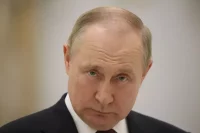
The Kremlin’s Grand Delusions
Despite a series of blunders, miscalculations, and battlefield reversals that would have surely seen him thrown out of office in most normal countries, President Vladimir Putin is still at the pinnacle of power in Russia. He continues to define the contours of his country’s war against Ukraine. He is micromanaging the invasion even as generals beneath him appear to be in charge of the battlefield. (This deputizing is done to protect him from blowback if something goes badly wrong in the war.) Putin and those immediately around him directly work to mobilize Russians on the home front and manipulate public views of the invasion abroad.… Seguir leyendo »




